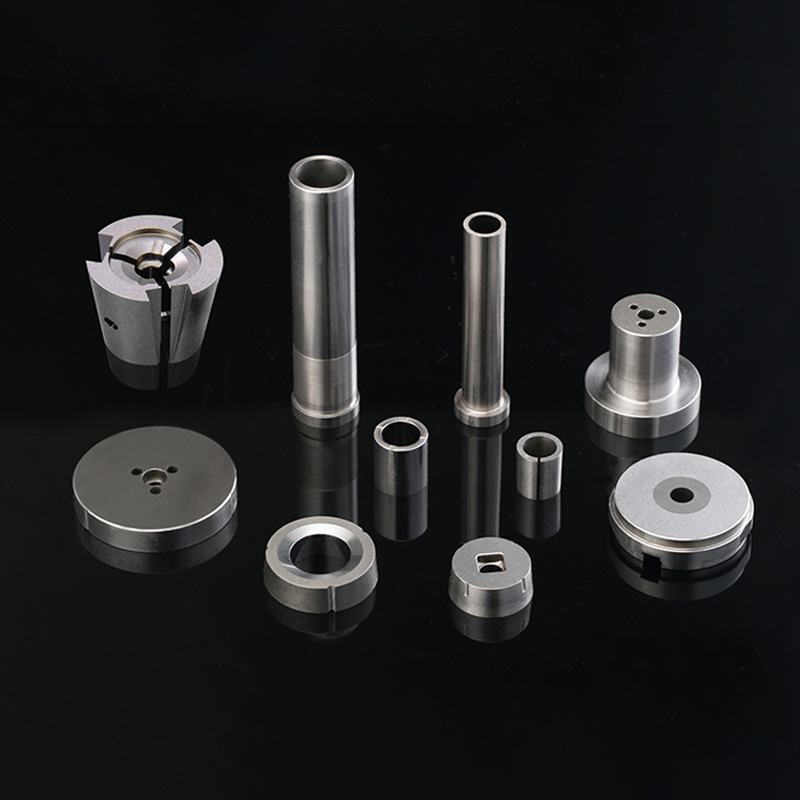In the manufacturing of fasteners, such as screws, nuts, bolts, and other fastening components, the quality of the die used plays a crucial role in ensuring the overall quality of the finished product. Whether it's for the automotive, aerospace, or electronics industries, the precision of the die directly influences the dimensions, surface finish, and functionality of the fasteners. In this article, we will explore how high-quality Fastener Dies contribute to product quality by ensuring accurate dimensions, smooth surfaces, clear threads, and reducing material waste.

1. Precision in Dimensional Control
Fasteners are subject to stringent dimensional requirements, particularly in industries like automotive, aerospace, and electronics where precision is paramount. Even a minor deviation in size can result in malfunction or failure of components. High-quality Fastener Dies ensure that each fastener produced meets precise dimensional specifications. The accuracy of the die design and manufacturing directly influences the consistency of each product, ensuring that they fit together properly with other components.
For example, in the production of screws, the die precision determines the external diameter, length, pitch, and other critical dimensions. If the die is poorly designed or worn out, it could lead to size deviations that may affect the fit and performance of the fastener in the final assembly.
2. Smooth Surface Finish
Alongside dimensional accuracy, the surface quality of fasteners is another critical factor that impacts their performance. Surface roughness, texture, and coating quality directly affect the longevity and functionality of fasteners. A high-quality die is capable of producing fasteners with smooth surfaces, reducing the likelihood of wear and corrosion over time.
For instance, if a die used to produce bolts or nuts has an improper surface treatment or is poorly designed, it may leave irregular marks or rough spots on the fastener. These imperfections can lead to increased friction, corrosion, and premature wear. By using high-quality dies, manufacturers can ensure that their products not only look aesthetically pleasing but also perform better, with less friction and a reduced likelihood of rusting.
3. Precise Thread Formation
The threads on fasteners are essential for their functionality, as they provide the mechanism for fastening and holding components together. The accuracy of thread formation is a vital aspect of Fastener Die quality. High-quality Fastener Dies ensure that threads are clearly defined, uniform, and within the correct pitch, which is critical for ensuring a secure and durable connection.
For example, when manufacturing bolts or nuts, the die precision determines the clarity and depth of the threads. A high-quality die will produce threads with consistent spacing and depth, ensuring that the fastener will properly engage with its corresponding threaded part. This is especially important in high-load applications, where poor thread quality can lead to loose connections, compromised strength, and safety issues.
4. Reducing Material Waste
In addition to improving product quality, high-precision dies also help reduce material waste. If a die is not accurate or well-designed, the production process may result in excess material usage or scrap, leading to increased costs. By using high-quality fastener dies, manufacturers can optimize material usage, thereby reducing waste and improving cost-efficiency.
For instance, cold forging and stamping dies can help achieve near-net-shape fasteners, meaning the finished product requires minimal additional machining. This not only reduces material waste but also lowers production costs by minimizing the need for secondary operations, such as grinding or polishing.
5. Improving Production Stability and Reliability
High-quality fastener dies contribute to the stability and reliability of the entire production process. The design, material selection, and manufacturing of the die determine its durability and how well it performs under high-stress conditions. Precision dies are able to maintain consistent performance, even under the demanding conditions of high-speed or high-volume production runs.
Furthermore, well-maintained dies lead to fewer production stoppages due to wear or breakdowns. This enhances the overall productivity of the manufacturing process and ensures that production lines run smoothly with fewer interruptions. As a result, manufacturers can maintain a steady output of high-quality fasteners, which is crucial for meeting customer demands and timelines.
6. Enhancing Customer Satisfaction
The quality of fasteners directly impacts customer satisfaction. When fasteners meet the required specifications in terms of size, surface finish, thread quality, and strength, they contribute to the overall performance and safety of the final product. High-quality fastener dies ensure that manufacturers can deliver consistent, reliable products to customers, which builds trust and fosters long-term business relationships.
Customers, especially those in industries like automotive and aerospace, often have high expectations for the fasteners used in their applications. By investing in precision dies, manufacturers can ensure that each batch of fasteners meets these stringent requirements, minimizing the risk of returns, complaints, or product failures.
Fastener dies play a pivotal role in ensuring the quality of fasteners. The precision of the die affects the dimensions, surface finish, thread quality, and material efficiency, all of which are critical to producing high-quality, reliable fasteners. By selecting high-quality fastener dies, manufacturers can ensure that their products meet the highest standards of performance and consistency. In addition to enhancing product quality, precision dies improve production efficiency and reduce waste, helping manufacturers maintain competitive advantage in a rapidly evolving marketplace.
As manufacturing technologies continue to advance, the importance of high-quality fastener dies will only grow, enabling companies to meet the ever-increasing demands for precision and reliability in industries ranging from automotive to aerospace and beyond.











